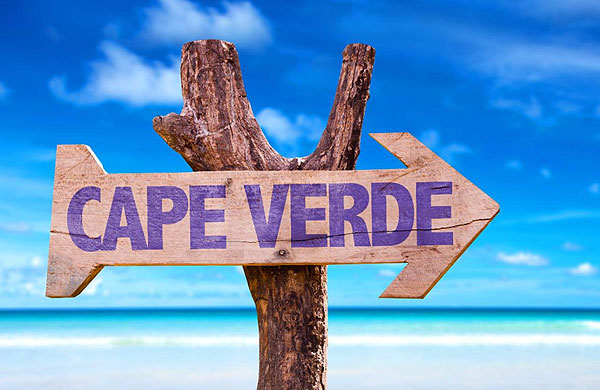The Cape Verde islands might be a big mark on the holiday radar of off-the-beaten-path lovers, but for most of us, they’re kind of a mystery. A volcanic, Portuguese, turtle-heavy mystery – AKA, the best kind. But don’t worry – with these eight Cape Verdean tidbits, we’ll help lift the shroud and introduce you to an African archipelago that just might be your next best friend.
To start with, where is Cape Verde?
We’re not saying you don’t have an already thorough grasp on world geography, but rather, the 10 little islands making up the Cape Verde archipelago are easy to miss. There have been whole blog posts dedicated to uncovering just where these islands are. In short, they’re found off the western coast of Africa and are a member of the African Union. They’re so close to the continent, in fact, that dust and sand from the Sahara Desert often makes its way to these shores via very strong winds.
Its roots are Portuguese
Cape Verde was uninhabited until the 15th century, when the Portuguese swept in. Its positioning made it an important stop in the slave trading industry, and was soon populated with European merchants and slaves. To this day, the official language of the Cape Verde islands is Portuguese, though, with European and African roots, the culture here is a thing completely of its own.

It’s illegal to bring the Cape Verdean currency on and off the islands
The official currency of Cape Verde is the Cape Verde Escudo, which operates on a fixed exchange rate with the Euro. You can’t exchange it outside of the country, so it’s technically against the law to take it off the islands. Inside international airports are banks that’ll exchange your pounds into Cape Verdean Escudo – plus, there are banks in the cities.
The Cape Verde islands are the 3rd largest nesting site for loggerhead turtles
The islands of Sal and Boa Vista are something of loggerhead hotspots, known for these giant reptiles scampering up and down the shores. There are huge conservation efforts being undertaken here to make sure the turtles have a safe environment to nest. The grown turtles tend to head to the shores to lay their eggs in the late summer between July and August, and the little guys hatch from September to December. Because the loggerheads are so beloved here, there are loads of turtle walks that groups can take to see these shelled guys up close.

Cape Verde is a windsurfing hotspot
Cape Verde might always have been treated to strong winds but it’s only recently seen a surge in windsurfers flocking to the sands with boards in hand. Nowadays it’s even home to windsurfing and kitesurfing competitions that see competitors come from all over the world. November to May are when the wind conditions are at their best, but Cape Verde’s tendency towards year-round, scorching hot temperatures mean there’s really no bad time to hit the beaches here.
They actually drink ‘grogue’
Apparently, grog isn’t just a thing you ordered at a tavern in medieval times – in Cape Verde, it’s an actual thing, albeit, spelled a little differently. Out here, grogue is a traditional alcoholic drink made from sugarcane. It’s often combined with lime and other spices to sweeten it up a bit.

More than half of Cape Verdeans live on Santiago
Santiago is the biggest of the Cape Verde islands, so it isn’t especially surprising that a slight majority of Cape Verdeans live here. What is surprising is that more Cape Verdeans live off the islands than on, emigrating in large numbers to places like the United States and Europe.
The islands are volcanic
Which perhaps isn’t a shock, considering they rise from the sea in a way that’s kind of out of nowhere (like most islands). It’s believed that the Cape Verde islands were formed more than a hundred million years in the past, but that the volcanoes died long ago. The Pico do Fogo volcano is the largest active volcano in Cape Verde, and is the highest point. It last erupted in 2014 for 77 days, sending lava streams through the nearby town of Cha das Caldeiras.
Now that you’re basically a Cape Verdean expert, the only thing left to do is actually visit!
Tabby is a marketing executive for Ad-Rank Media and freelance copywriter working primarily in the travel sector. Tabby runs the website JustCantSettle.com and has been featured on sites including USA Today and Smarter Travel.'































































































































































































































